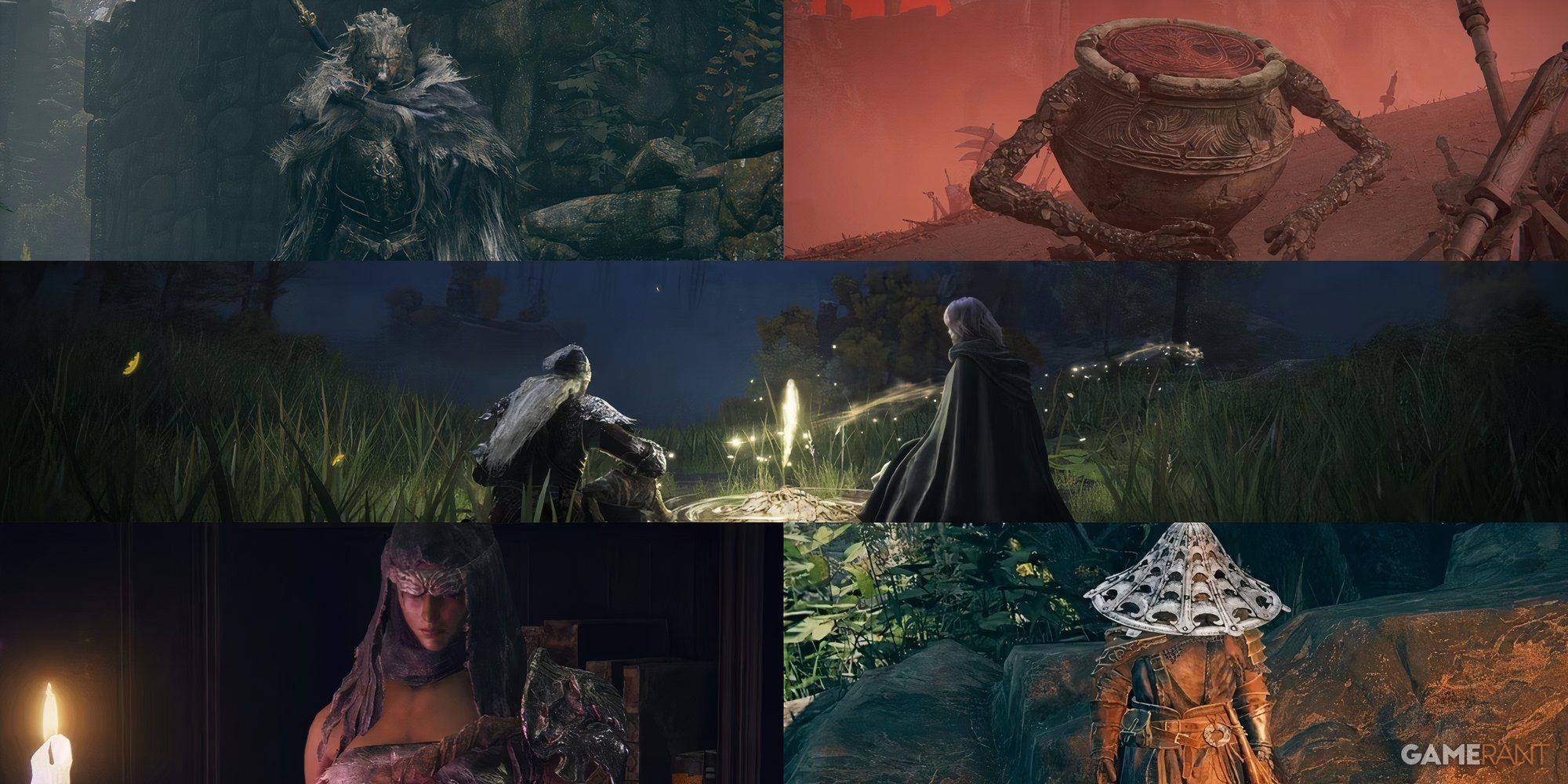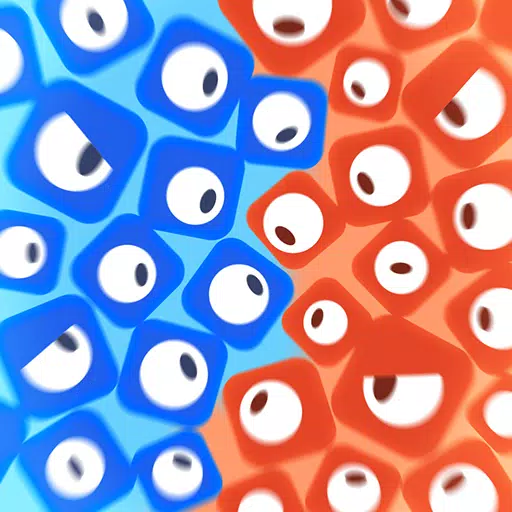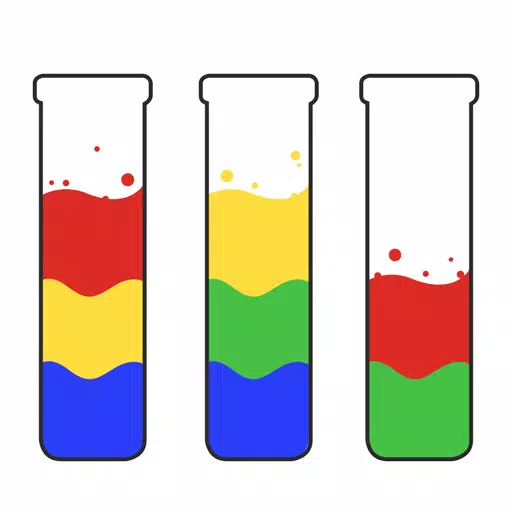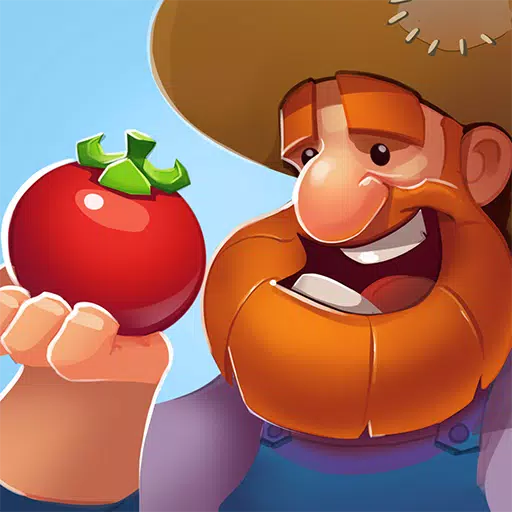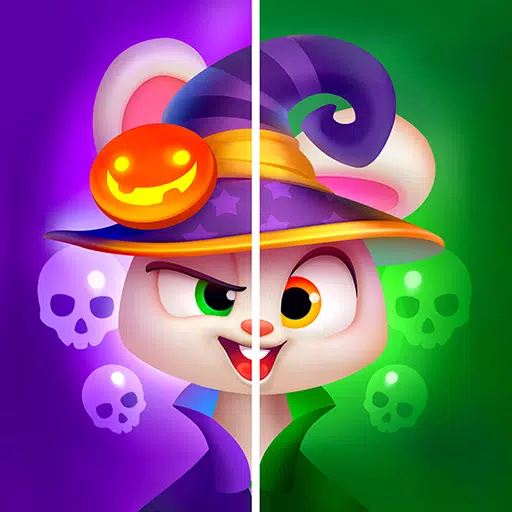Minecraft's Floral Palette Enchants Gamers
Explore the Vibrant World of Minecraft Flowers: A Comprehensive Guide
This guide delves into the diverse world of Minecraft flowers, highlighting their unique properties and practical applications in your adventures. From crafting dyes to landscape decoration, these botanical wonders offer a wealth of possibilities.
Table of Contents
- Poppy
- Dandelion
- Allium
- Rose Bush
- Wither Rose
- Peony Bush
- Lily of the Valley
- Tulip
- Azure Bluet
- Blue Orchid
- Cornflower
- Torchflower
- Lilac
- Oxeye Daisy
- Sunflower
Poppy
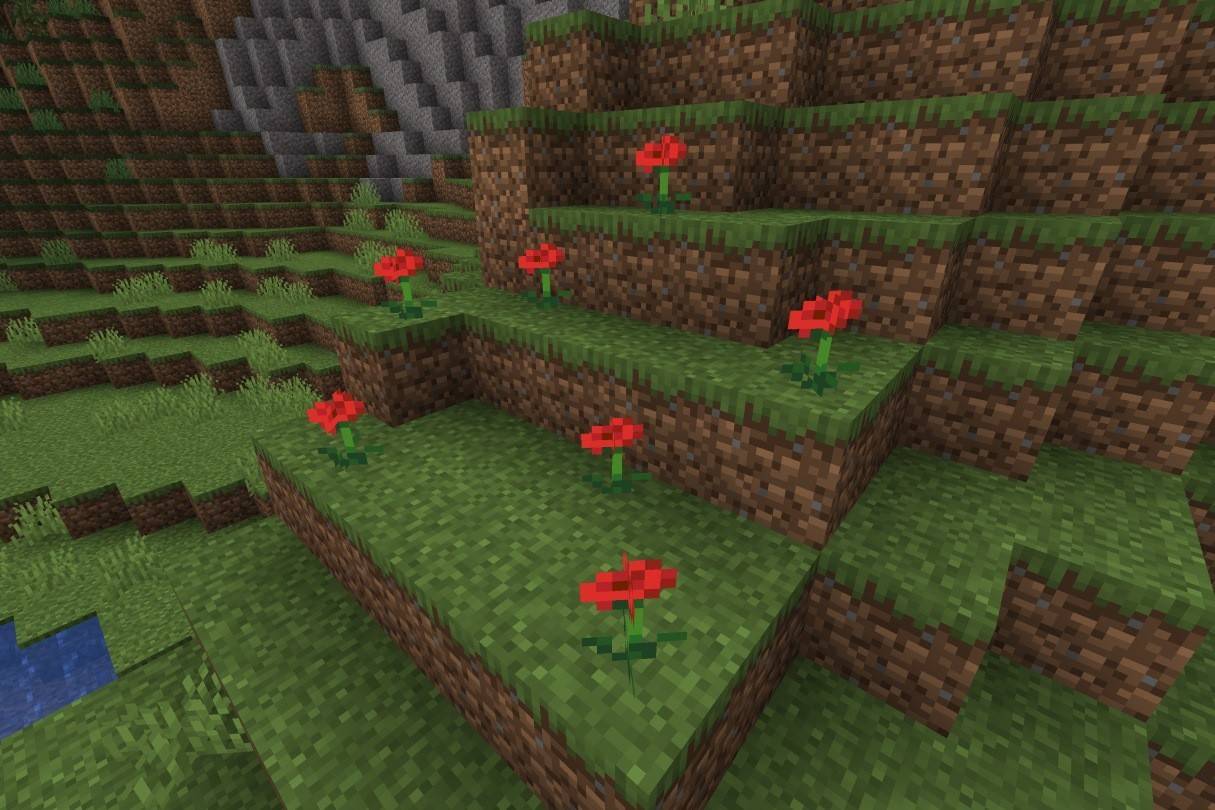 Image: ensigame.com
Image: ensigame.com
Poppies, those iconic red blooms, now hold the place of the original rose and cyan flowers. Found across various biomes, they're also a surprising gift from Iron Golems to village children. Their primary use is crafting red dye, essential for coloring banners, beds, wool, sheep, and even wolf collars.
Dandelion
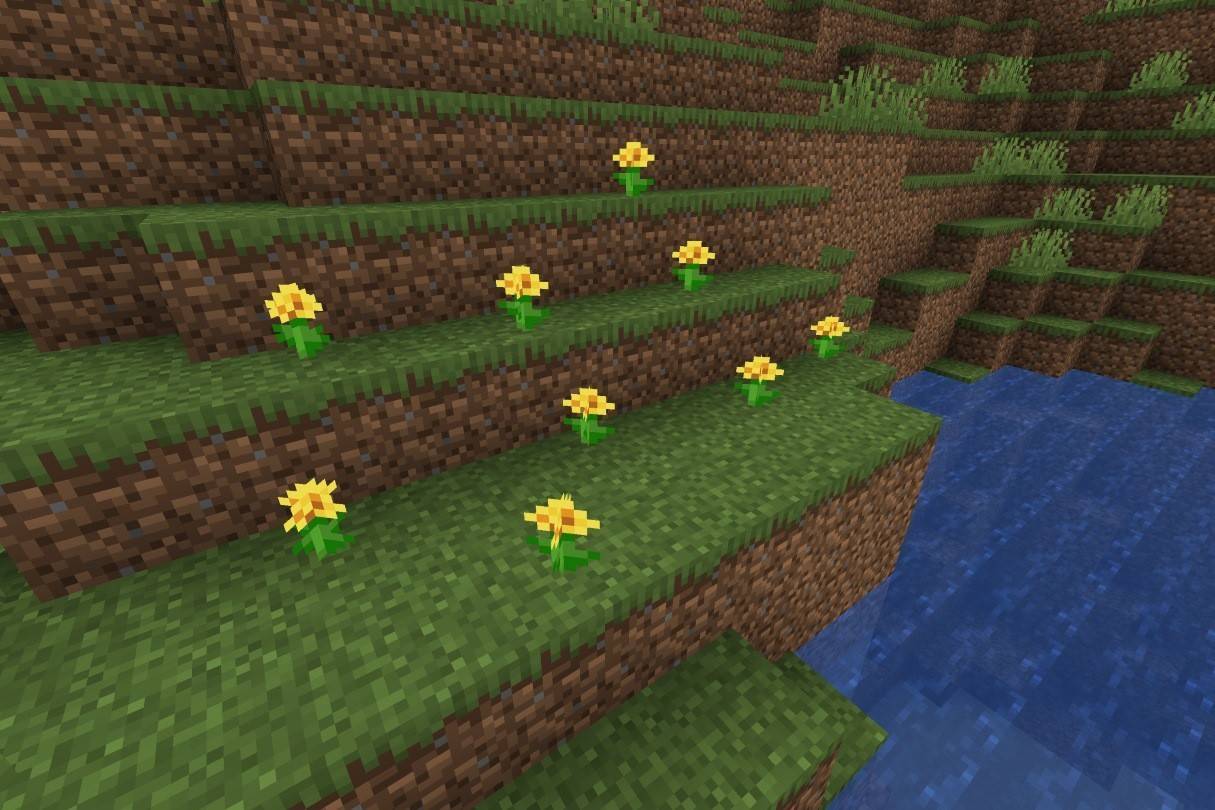 Image: ensigame.com
Image: ensigame.com
Bright yellow dandelions brighten most biomes (excluding marshes and ice plains). Flower forests are particularly abundant with them. While they yield a single unit of yellow dye (sunflowers provide double), their cheerful color adds a vibrant touch to banners, wool, and other decorative items.
Allium
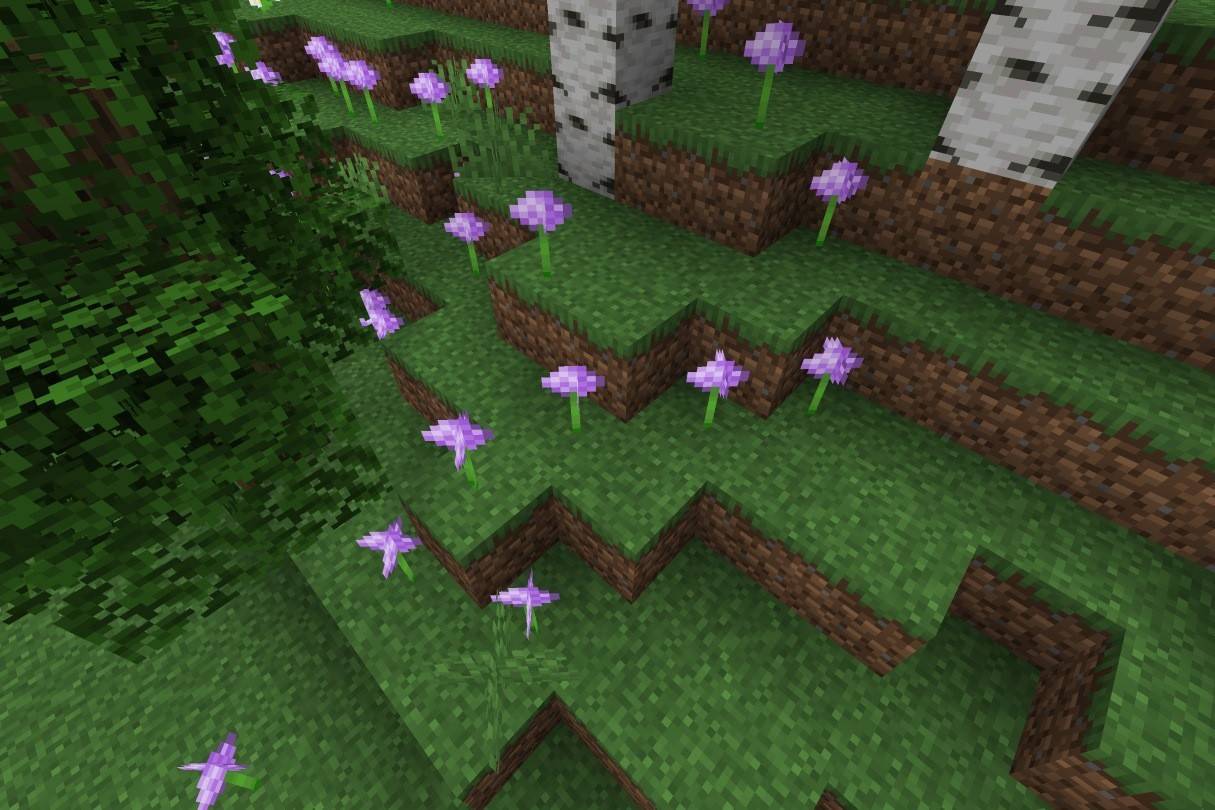 Image: ensigame.com
Image: ensigame.com
Alliums, with their striking purple hue, are native to flower forests. They're key to creating magenta dye, perfect for adding a pop of color to mobs and crafting magenta stained glass, terracotta, and wool.
Rose Bush
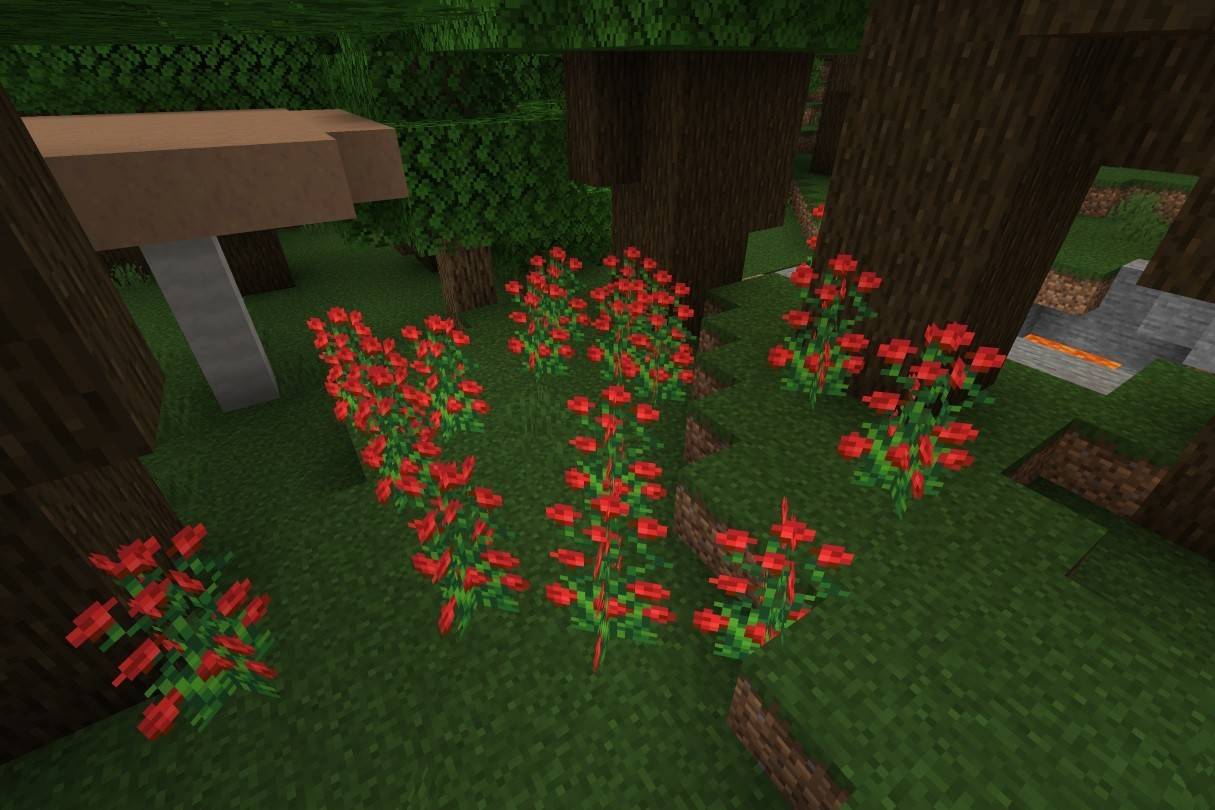 Image: ensigame.com
Image: ensigame.com
These tall, red-flowered plants grace various wooded biomes. Like lilacs and sunflowers, rose bushes stand out with their two-block height. They provide red dye, useful for dyeing wool, banners, beds, and leather armor. Unlike the dangerous wither rose, the rose bush is a safe and attractive addition to any landscape.
Wither Rose
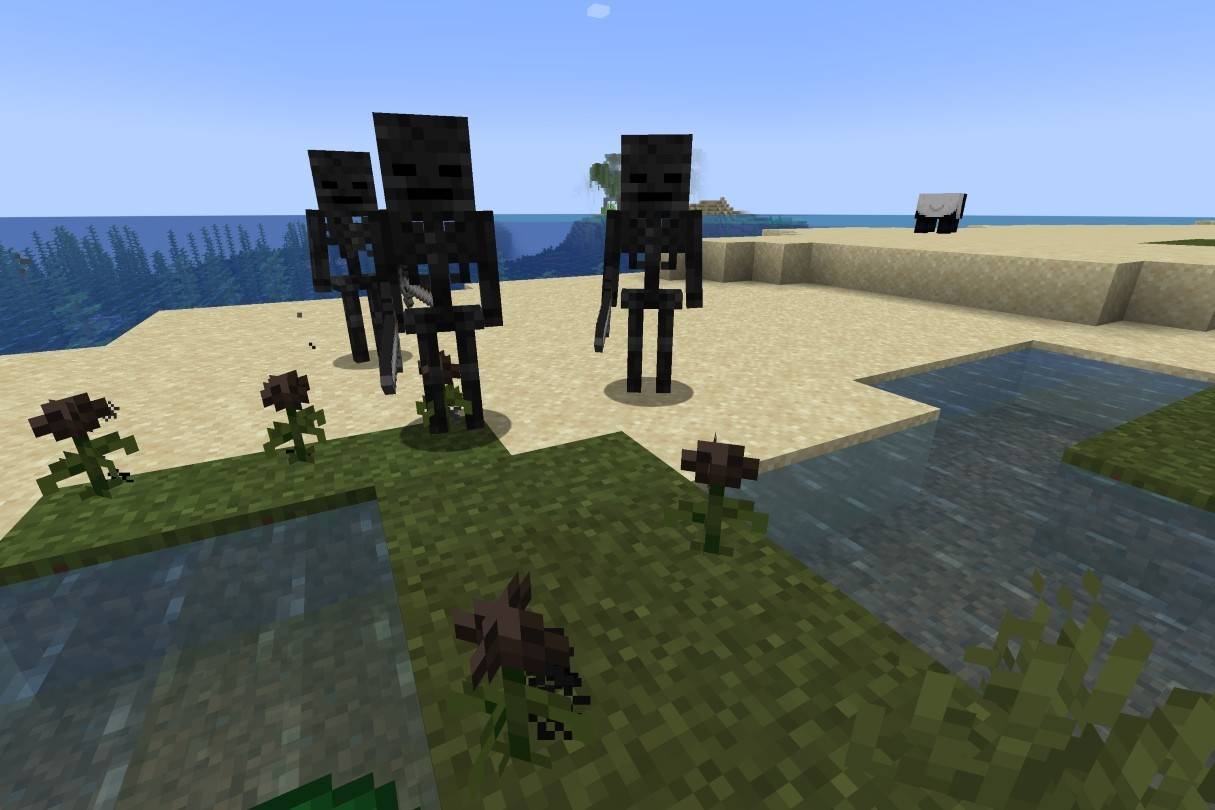 Image: ensigame.com
Image: ensigame.com
The wither rose is a rare and dangerous flower, spawned by the Wither or occasionally found in the Nether. Touching it inflicts the Wither effect (curable with milk). It yields black dye, used for coloring leather armor, terracotta, banners, beds, and wool. It's also a component in firework stars and black concrete powder.
Peony Bush
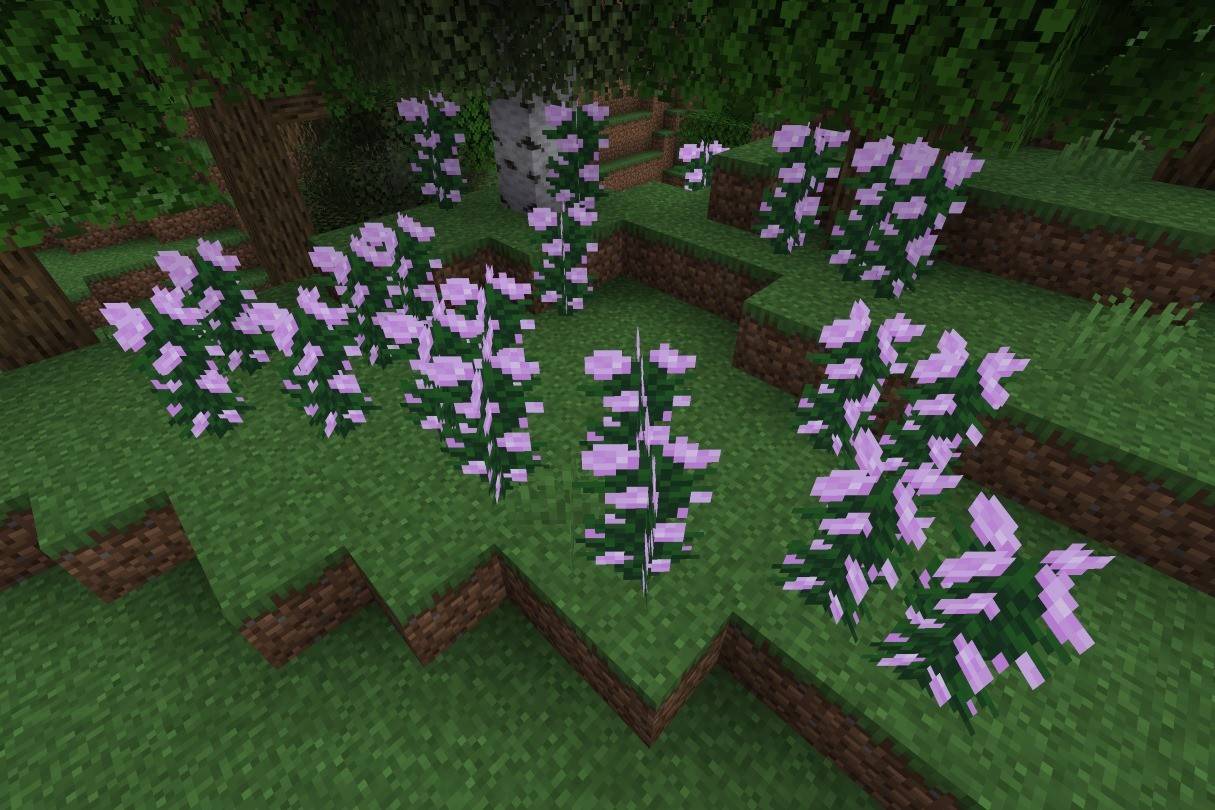 Image: ensigame.com
Image: ensigame.com
These tall, pink flowers thrive in woodland biomes. They produce pink dye (or can be crafted from red and white dye). Bone meal helps cultivate them, allowing for plentiful harvests. Pink dye is useful for coloring wool, stained glass, terracotta, and wolf collars.
Lily of the Valley
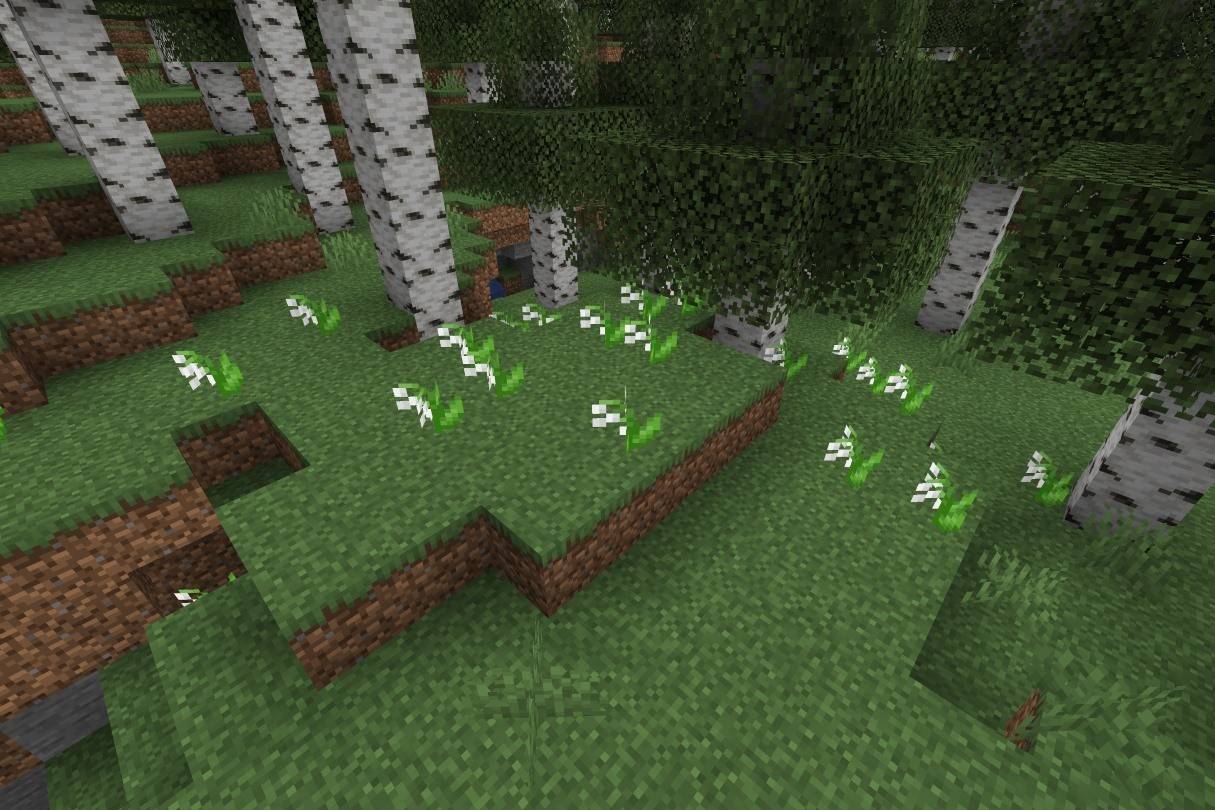 Image: ensigame.com
Image: ensigame.com
The delicate Lily of the Valley, found in forests and flower forests, yields white dye. This dye is essential for coloring wool, banners, beds, terracotta, and wolf collars, and is also a base for creating other dyes like gray, light gray, light blue, lime, magenta, and pink.
Tulip
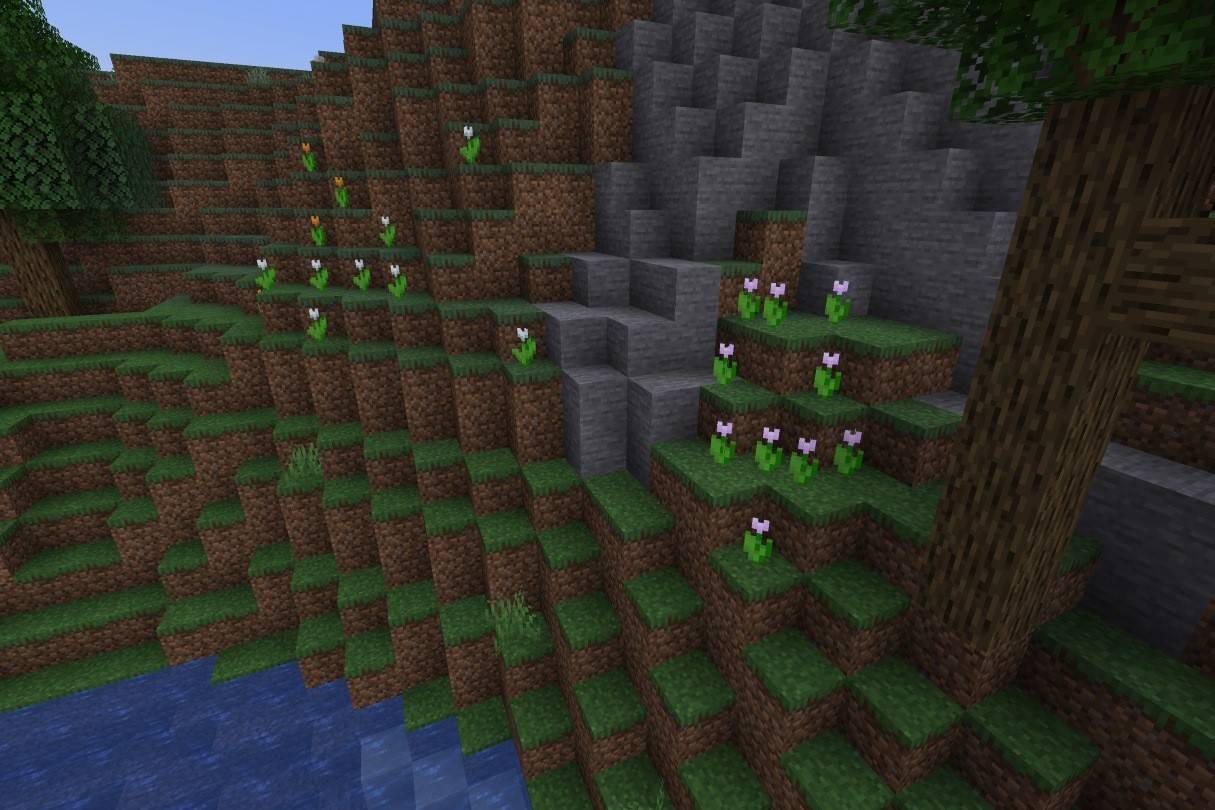 Image: ensigame.com
Image: ensigame.com
Tulips, found in plains and flower forests, come in red, orange, white, and pink varieties. Each color provides a corresponding dye (or light gray), offering diverse options for customization.
Azure Bluet
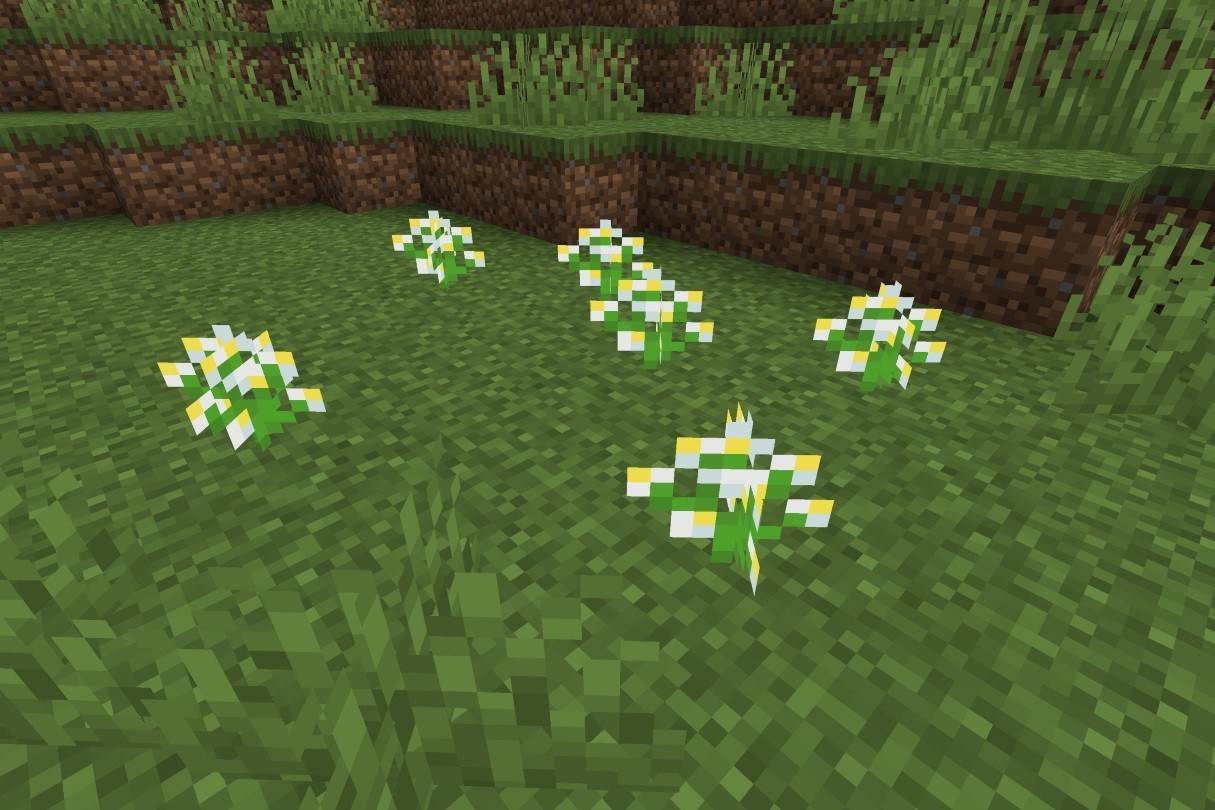 Image: ensigame.com
Image: ensigame.com
This small, white and yellow flower, found in grasslands, sunflower plains, and flower forests, creates light gray dye.
Blue Orchid
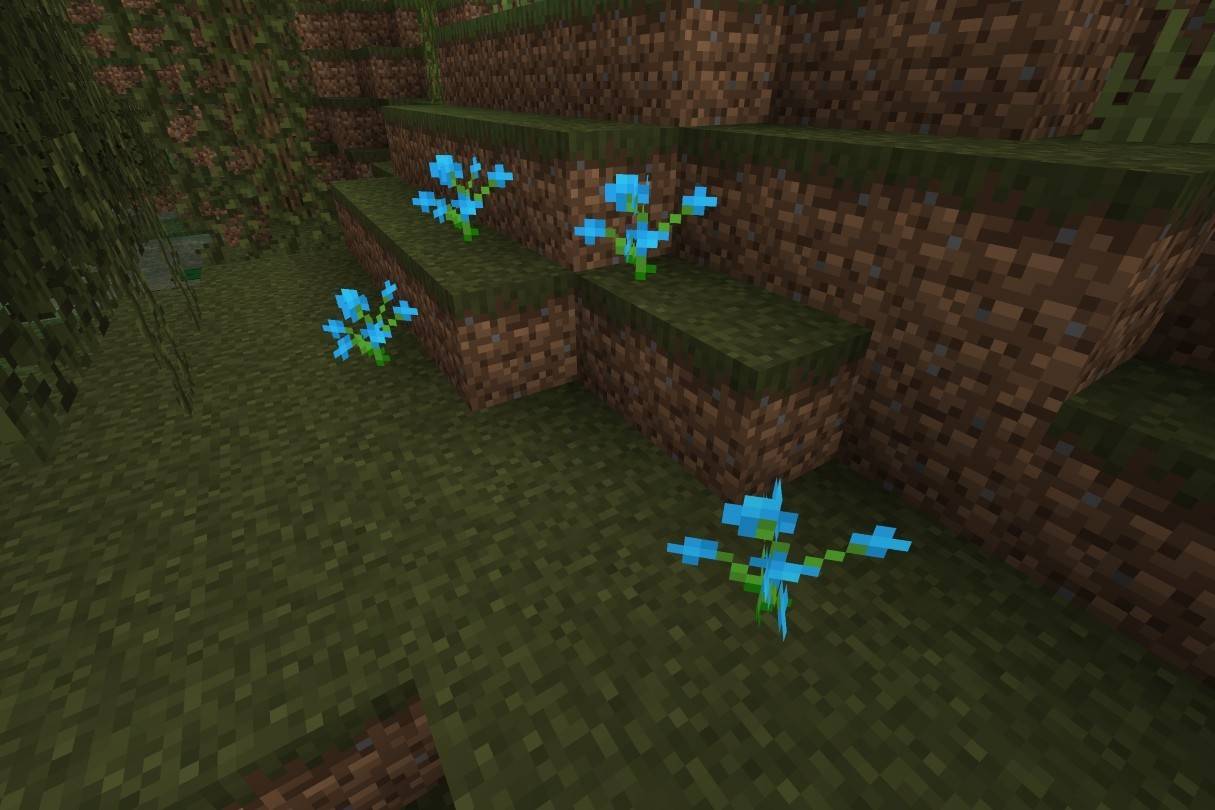 Image: ensigame.com
Image: ensigame.com
The rare blue orchid, found only in swamps and taiga biomes, is a source of light blue dye.
Cornflower
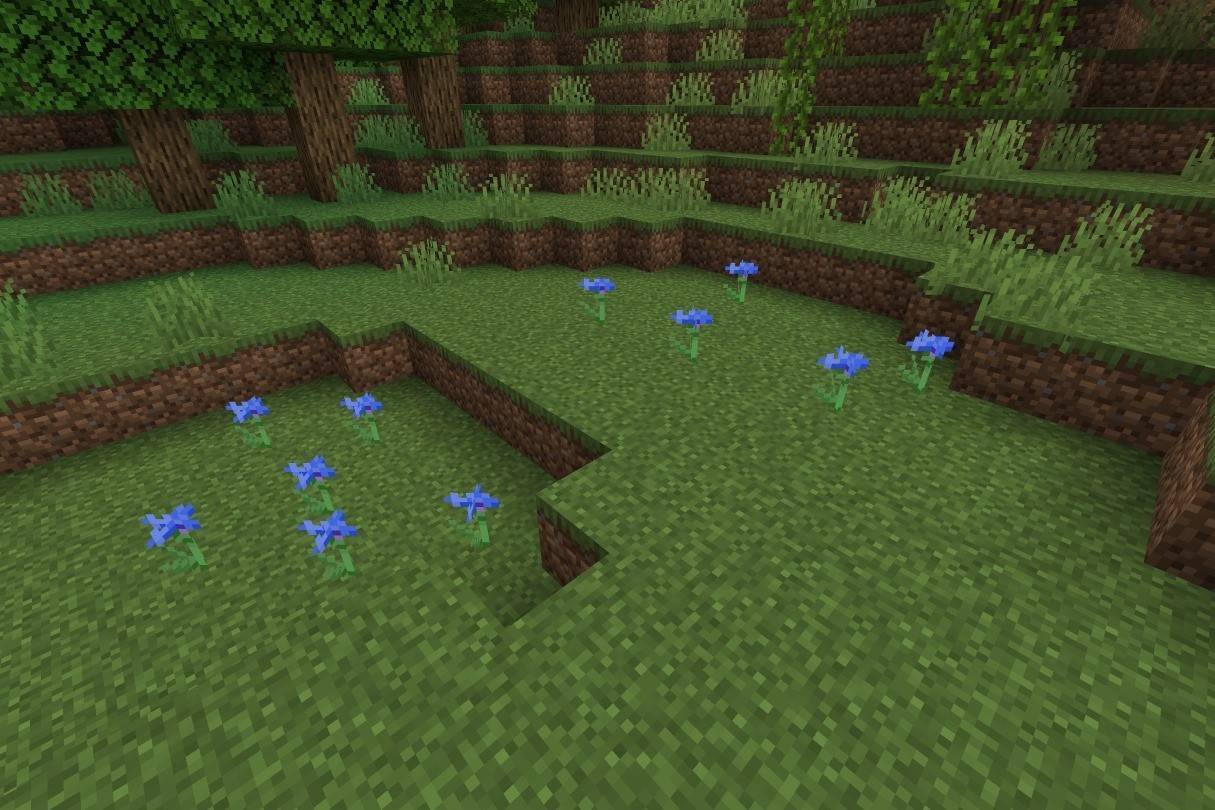 Image: ensigame.com
Image: ensigame.com
Cornflowers, with their spiky blue petals, thrive in plains and flower forests. They produce blue dye, useful for coloring wool, glass, and terracotta.
Torchflower
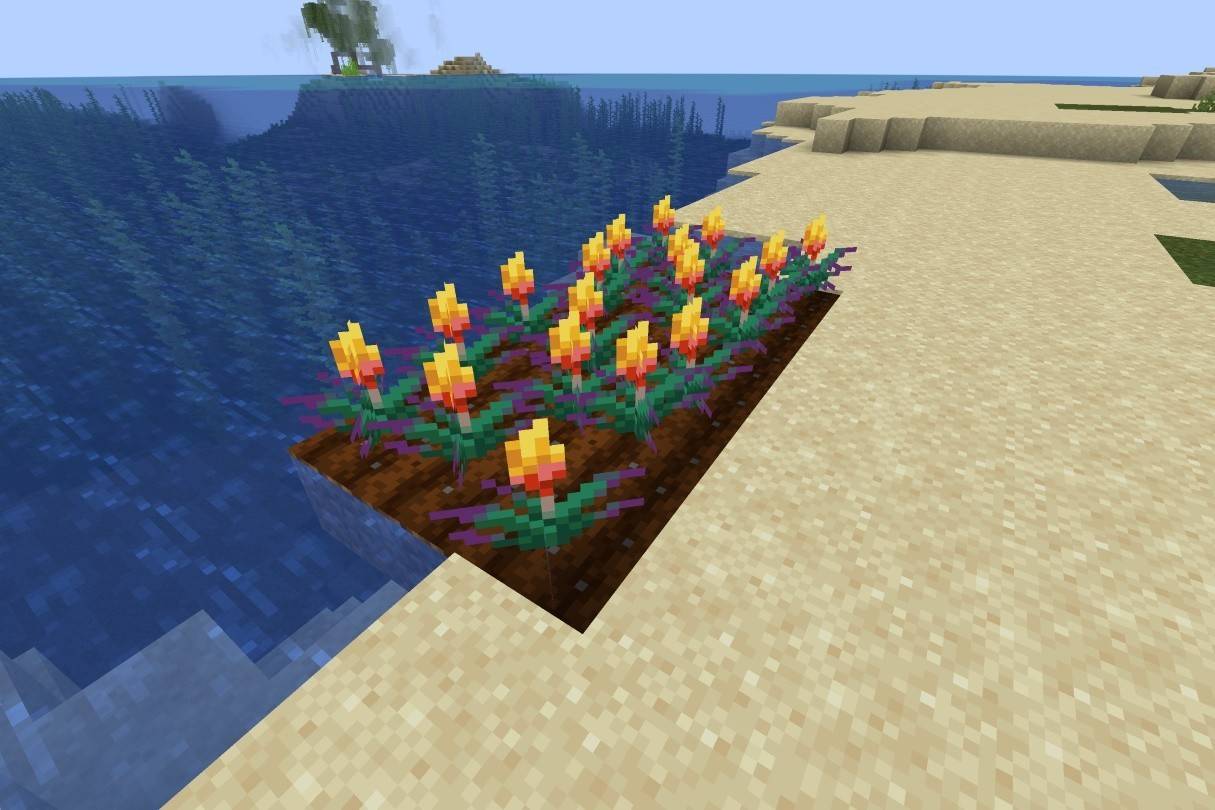 Image: ensigame.com
Image: ensigame.com
Grown from seeds, torchflowers yield orange dye. Their behavior varies between Java and Bedrock editions regarding natural generation and bone meal propagation.
Lilac
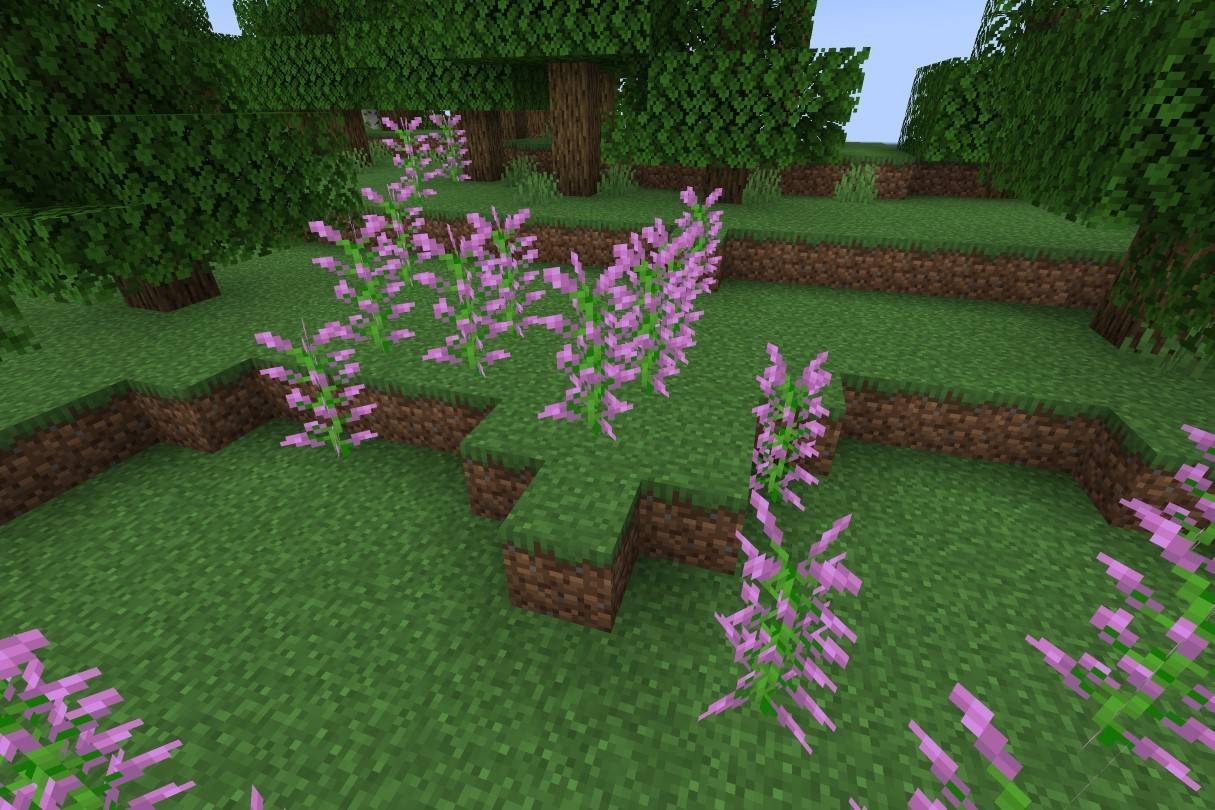 Image: ensigame.com
Image: ensigame.com
These tall, light-purple flowers, found in various forest biomes, create magenta dye.
Oxeye Daisy
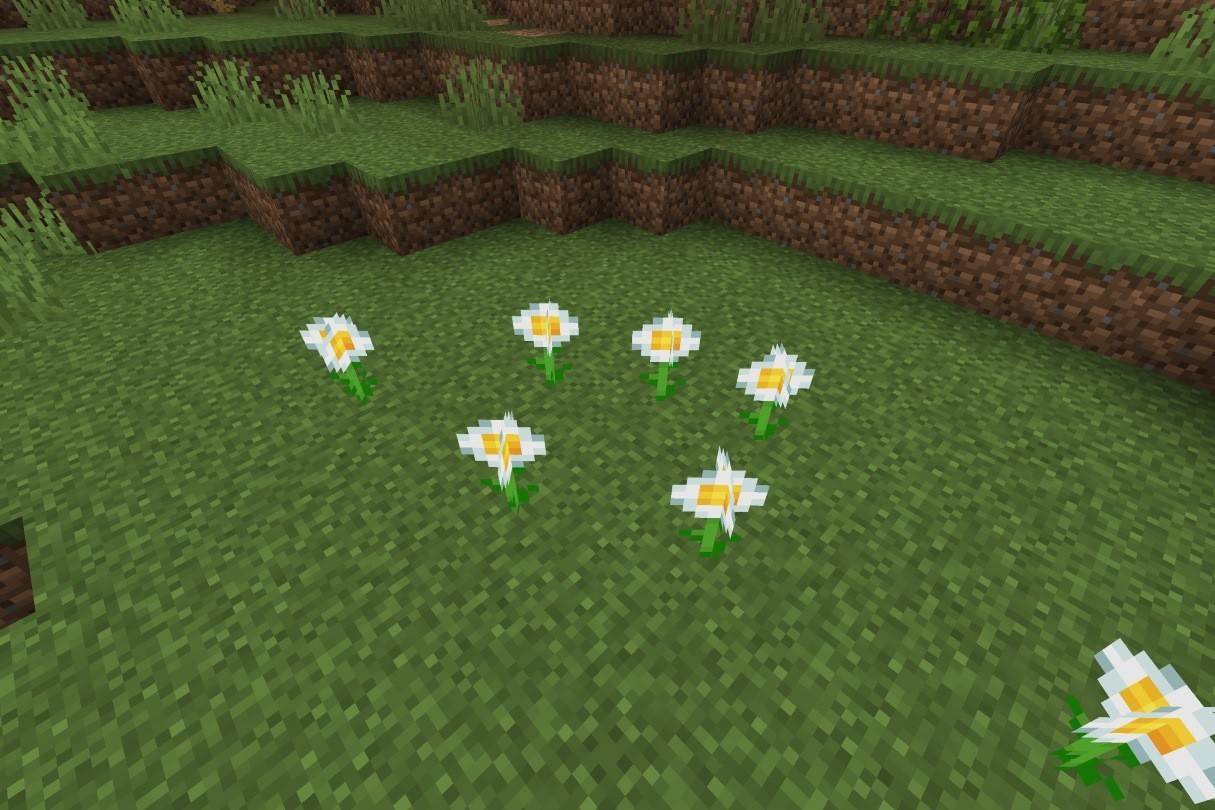 Image: ensigame.com
Image: ensigame.com
The oxeye daisy, a white flower with a yellow center, found in plains biomes, creates light gray dye and is also useful for decorative purposes.
Sunflower
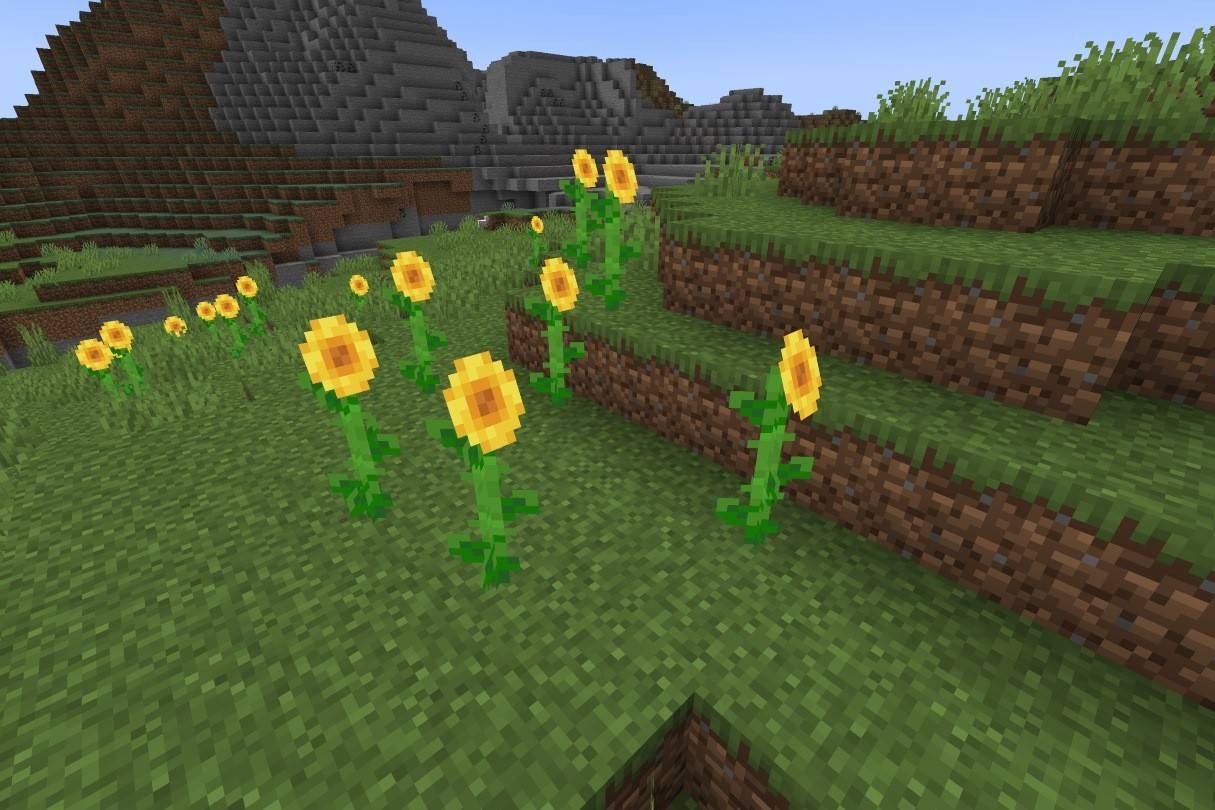 Image: ensigame.com
Image: ensigame.com
Sunflowers, found in sunflower plains, produce yellow dye and are known for their eastward orientation, making them useful navigational aids.
This comprehensive guide provides a detailed overview of Minecraft's diverse floral offerings, highlighting their unique characteristics and uses. Happy crafting!
Latest Articles


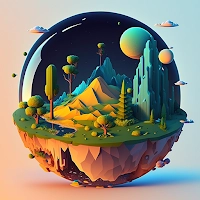
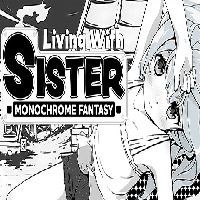








![Roblox Forsaken Characters Tier List [UPDATED] (2025)](https://images.dyk8.com/uploads/18/17380116246797f3e8a8a39.jpg)



